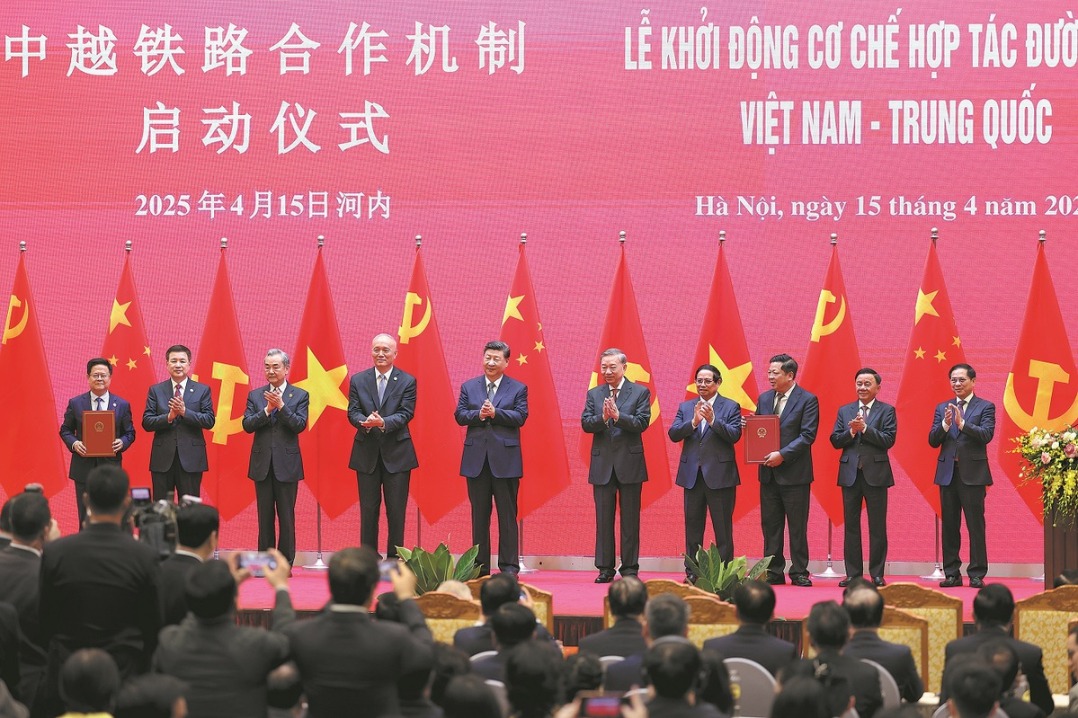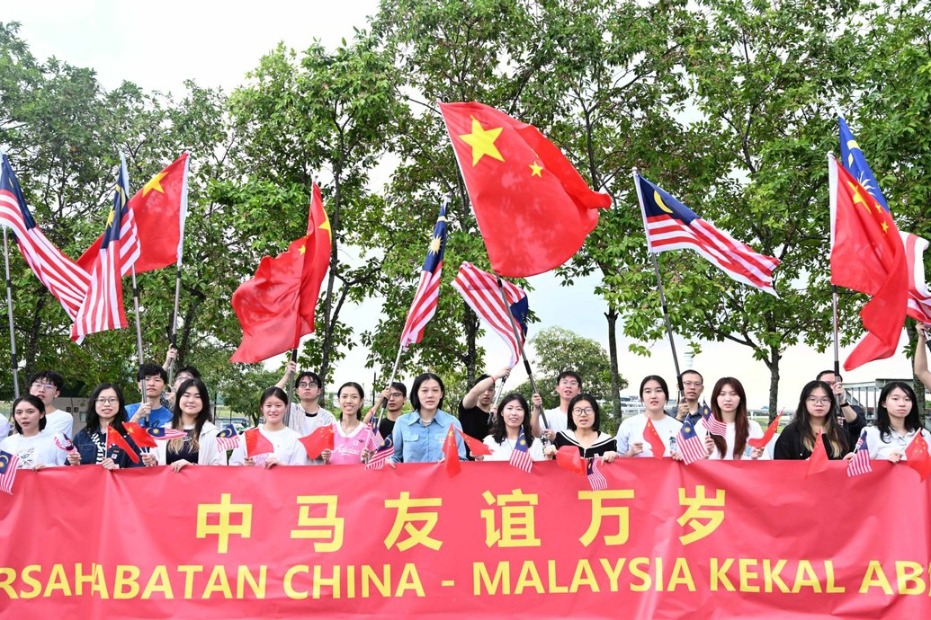Chinese investors boost growth in Malaysia
Cultural similarities give companies confidence to pump money into nation

'Win-win scenario'
China is one of the largest sources of foreign investments for Malaysia. Last year, China invested 28.2 billion ringgit ($6.4 billion) in Malaysia, accounting for over 16 percent of Malaysia's 170.4 billion ringgit foreign investment revenue, according to the Malaysian Investment Development Authority, or MIDA. The amount is nearly double the 14.5 billion ringgit Chinese investors posted in 2023 and is expected to create over 20,000 new jobs.
Safwan Nizar Johari, acting investment consul for the Malaysian consulate in Guangzhou, Guangdong province, said that in the past few years, most Chinese investments have been in the EV, battery and related industries. He said the two countries celebrated the 50th anniversary of diplomatic relations in 2024, and this strong diplomatic relationship has made Chinese companies more confident about investing in Malaysia.
Safwan said Malaysia implements business-friendly policies — including tax incentives, a 100 percent foreign equity ownership and long-term work visas for expatriates — that entice a lot of foreign investors. He said Malaysia is an "open and trading country".
Like China, Malaysia is a member of the Regional Comprehensive Economic Partnership, the world's biggest free trade pact. As a member of the Association of Southeast Asian Nations, Malaysia is also part of the ASEAN-China Free Trade Area.
Malaysia's multicultural population is also a huge draw for Chinese investors. Ethnic Chinese comprise about 20 percent of the Malaysian population — over 35 million people — and they can speak several languages, including Malay, Chinese and English.
"This contributes to the decision making of a Chinese company (in choosing an) investment destination in ASEAN," Safwan said.
"When they choose Malaysia, it feels like home. (It is) very comfortable for them to set up (a business) in Malaysia," he told China Daily.
And with Malaysia as this year's ASEAN chair, Safwan said Malaysia is inviting Chinese and other foreign companies to invest in Malaysia as a gateway to ASEAN and beyond.
"The theme of ASEAN this year is inclusivity and sustainability. So this is really in line with our main goal to invite and attract foreign companies to come to our country to invest and make Malaysia a hub, not just to penetrate the local market, but also to export globally," Safwan said, adding that in enticing foreign investors, Malaysia doesn't believe in a zero-sum game.
"We believe in the win-win scenario. When they invest in Malaysia, we want to grow with the other ASEAN countries. This is why we want to make Malaysia a (regional) hub and expand beyond Malaysia," he said.
Daniel Chua, senior vice-president of GP Energy Tech International, a subsidiary of battery manufacturer Gold Peak Technology Group, concurs with Safwan.
Chua said Chinese companies feel "comfortable" investing in Malaysia thanks to cultural similarities, common language and the Malaysians' cordial relationship with Chinese investors and employees.
Gold Peak, a Hong Kong-listed company, has three manufacturing plants in the southern Malaysian state of Johor. On Feb 19, the company submitted a letter of intent to Invest Johor, the state government's principal investment promotion agency, to build a $150 million nickel-based battery manufacturing facility and research and development center in the Johor-Singapore Special Economic Zone, or JS-SEZ.
Chua said when Gold Peak invests in Malaysia, they introduce new technology, create jobs and contribute to regional development. The company employs locals for various positions, mostly in professional, managerial and executive capacities. The proposed plant in JS-SEZ, for example, is expected to create as many as 180 new jobs.
"This was actually the whole idea behind in terms of manpower and talent attraction," Chua said. "That's what we want to create for the local economy. At the same time, we try to find local suppliers."
Gold Peak is just one of many Chinese companies that have been investing in Malaysia — Southeast Asia's third-largest economy — over the past 20 years as part of their global expansion plans. Among the earliest investors are Huawei, which entered Malaysia in 2001, and ZTE, which arrived in 2004. To this day, Malaysia remains crucial in these two technology companies' international business operations.
Kuala Lumpur is home to Huawei's Asia-Pacific regional headquarters, global training center, global technical and solutions center and customer solution innovation center. On Feb 18, Huawei launched Mate XT, the world's first trifold smartphone, in Malaysia's capital city.
Malaysia's Minister of Investment, Trade and Industry Zafrul Aziz said 95 percent of ZTE's 5G equipment includes chips from Malaysia, proof of Malaysia's significance in ZTE's global operations. In a post published in December 2024 on his social media account X (formerly known as Twitter), Zafrul said ZTE is planning to invest 200 million ringgit in Malaysia to establish two innovation centers, and bring the latest 5G technology through collaboration with local operators.
























